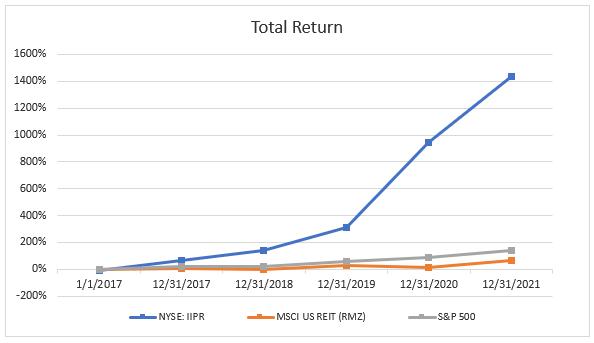wells or withdrawing surface water may be required by federal, state and local governmental entities pursuant to laws, ordinances, regulations or other requirements, and such permits may be difficult to obtain due to drought, the limited supply of available water within the districts of the states in which our properties are located or other reasons.
In addition to the regulation of water usage and water runoff, state, local and federal governments also seek to regulate the type, quantity and method of use of chemicals and materials for growing crops, including fertilizers, pesticides and nutrient rich materials. Such regulations could include restricting or preventing the use of such chemicals and materials near residential housing or near water sources. Further, some regulations have strictly forbidden or significantly limited the use of certain chemicals and materials. Licenses, permits and approvals must be obtained from governmental authorities requiring such licenses, permits and approvals before chemicals and materials can be used at grow facilities. Reports on the usage of such chemicals and materials must be submitted pursuant to applicable laws, ordinances, and regulations and the terms of the specific licenses, permits and approvals. Failure to comply with laws, ordinances and regulations, to obtain required licenses, permits and approvals or to comply with the terms of such licenses, permits and approvals could result in fines, penalties and/or imprisonment.
The use of land for agricultural purposes in certain jurisdictions is also subject to regulations governing the protection of endangered species. When agricultural lands border, or are in close proximity to, national parks, protected natural habitats or wetlands, the agricultural operations on such properties must comply with laws, ordinances and regulations related to the use of chemicals and materials and avoid disturbance of habitats, wetlands or other protected areas.
Because properties we own may be used for growing cannabis, there may be other additional land use and zoning regulations at the state or local level that affect our properties that may not apply to other types of agricultural uses. For example, certain states in which our properties are located require stringent security systems in place at grow facilities, and require stringent procedures for disposal of waste materials.
As an owner of agricultural lands, we may be liable or responsible for the actions or inactions of our tenants with respect to these laws, regulations and ordinances.
Environmental Matters
Our properties and the operations thereon are subject to federal, state and local environmental laws, ordinances and regulations, including laws relating to water, air, solid wastes and hazardous substances. Our properties and the operations thereon are also subject to federal, state and local laws, ordinances, regulations and requirements related to the federal Occupational Safety and Health Act, as well as comparable state statutes relating to the health and safety of our employees and others working on our properties. Although we believe that we and our tenants are in material compliance with these requirements, there can be no assurance that we will not incur significant costs, civil and criminal penalties and liabilities, including those relating to claims for damages to persons, property or the environment resulting from operations at our properties. Furthermore, many of our properties have been repurposed for regulated cannabis operations, and historically were utilized for other purposes, including heavy industrial uses, which expose us to additional risks associated with historical releases of substances at the properties.
Real Estate Industry Regulation
Generally, the ownership and operation of real properties are subject to various laws, ordinances and regulations, including regulations relating to zoning, land use, water rights, wastewater, storm water runoff and lien sale rights and procedures. These laws, ordinances or regulations, such as the Comprehensive Environmental Response and Compensation Liability Act and its state analogs, or any changes to any such laws, ordinances or regulations, could result in or increase the potential liability for environmental conditions or circumstances existing, or created by tenants or others, on our properties. Laws related to upkeep, safety and taxation requirements may result in significant unanticipated expenditures, loss of our properties or other impairments to operations, any of which would adversely affect our cash flows from operating activities.
